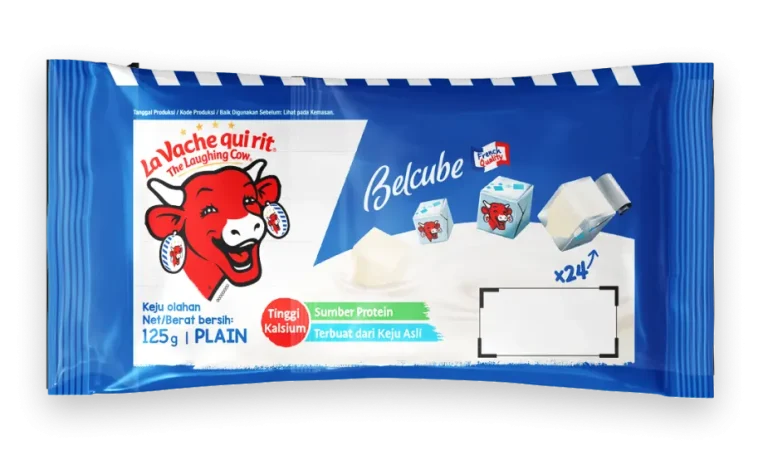Cheese stands out as a highly consumed food, yet its benefits remain misunderstood by many, leading to unwarranted hesitations in its consumption. The prevailing misconception about cheese’s negative impact is a result of various influences, encompassing nutritional information, dietary trends, and health concerns. However, this notion is far from the truth, given that cheese boasts a wealth of nutrients, including protein, calcium, and phosphorus, positioning it as a valuable component of a balanced diet. Research from The American Journal of Clinical Nutrition says that cheese can even help prevent chronic diseases such as heart disease and type 2 diabetes. Delving into the matter, presented below are 5 compelling health advantages offered by cheese:
5 health benefits of cheese
1. Maintain Bone Health and Prevent Osteoporosis
Osteoporosis is a disease characterized by brittle and porous bones. Osteoporosis can be caused by low calcium consumption or poor calcium absorption that causes bones to slowly break down. Consuming balanced nutrition, such as adequate protein, calcium and vitamin D can help avoid osteoporosis. Therefore, consuming dairy products, especially cheese that is rich in vitamin D and balanced minerals can be one way to protect bones from the risk of osteoporosis.
Also Read: 8 Delicious Homemade Cheese Snacks to Try!
2. Reduces Risk of Heart Disease
Incorporating a rich profile of nutrients, cheese not only supplies essential protein and calcium but also provides a source of vital vitamins like A and B12. The results of a study from the European Journal of Nutrition, these vitamins play a pivotal role in upholding overall health and the heart, thereby diminishing the likelihood of cardiovascular ailments such as heart disease, heart attacks, and strokes. This beneficial impact can be attributed to the amalgamation of calcium and probiotics inherent in cheese, both of which confer advantageous effects on heart health, consequently curbing the risk of heart-related issues.
However, bear in mind that cheese’s elevated fat and sodium content warrants caution, as excessive consumption can potentially contribute to conditions like hypertension and obesity. These conditions, in turn, serve as risk factors for heart disease. To tread prudently, mindful attention to daily sodium intake remains paramount. Opting for cheese variants low in fat and sodium, such as Swiss Cheese, Mozzarella, and Ricotta, can align with the goal of maintaining optimal sodium levels. A notable example is Babybel, crafted from low-fat, low-sodium Swiss Cheese, rendering it a safe and palatable choice across all age groups.
3. Prevents Diabetes
Cheese emerges as a wise dietary option for individuals engaged in mindful eating and blood sugar regulation, particularly when paired with high-carb counterparts like fruits and nuts. For those actively managing blood sugar or grappling with diabetes, integrating cheese into their regimen fosters the maintenance of stable glucose levels sans compromising heart well-being. Employing cheese in moderation facilitates the inclusion of essential fats within one’s diet. Nonetheless, exercising discernment in cheese selection, judicious food pairings, and label scrutiny while purchasing becomes pivotal.
Also Read: Low-Fat Cheeses That Helps With Your Diet
4. Helps Maintain Cholesterol
Cheese frequently raises concerns due to its saturated fat and sodium content. However, cheese encompasses diverse fats beyond saturated fat like monounsaturated and polyunsaturated fats. These beneficial fats, when consumed in moderation, can have a neutral or even positive impact on cholesterol levels. Additionally, the fermentation process of cheese yields probiotics and specific peptides that contribute significantly to cholesterol metabolism maintenance. This has been confirmed by research from Healthlines, which summarizes the evidence that cheese can be consumed in moderation as part of a balanced diet and cholesterol control.
*It’s important to note that individual reactions to food components can differ. While some individuals may find cheese compatible with their cholesterol levels, others might exhibit heightened sensitivity to its saturated fat proportion. If apprehensions about cholesterol levels arise, seeking guidance from a healthcare professional or registered dietitian is prudent. Their expertise will aid in making well-informed decisions tailored to your health status, dietary preferences, and objectives.
5. Helps Maintain Weight Loss
If you’re aiming to shed some pounds, adding cheese to your diet in moderation can be a smart move. Cheese has the power to keep you feeling satisfied for longer periods, which can help fend off those unhealthy snack cravings. Mixing cheese with high-fiber foods like whole grain bread, lettuce, cucumber, nuts, and fruits can help extend that feeling of fullness. Dairy products like cheese and yogurt are also known to be more filling than drinks. So, cheese can play a positive role in weight loss by making you feel full for longer and curbing the urge for unhealthy snacks.
Also Read: Healthy Cheese Types for Diet and How to Eat Them!
In these 5 points, 5 health benefits of cheese are outlined that contradict common perceptions about cheese. A number of misconceptions color the way cheese is perceived, such as the notion that cheese is high in calories and therefore considered an unhealthy snack, or that cheese is the cause of chronic diseases and high cholesterol due to its saturated fat content. These inaccurate views often stem from incomplete nutritional information, which in turn results in feelings of guilt when enjoying cheese.
Let’s start adding The Laughing Cow cheese to your diet and complete your family’s nutritional needs with snacks made from The Laughing Cow cheese. The Laughing Cheese is a convenient snack with a versatile and flavorful source of essential nutrients, including protein, calcium, vitamins and healthy fats. For Belmoomy who are looking for low-calorie cheese, Babybel – Swiss Cheese is the right choice with low calories and sodium.







